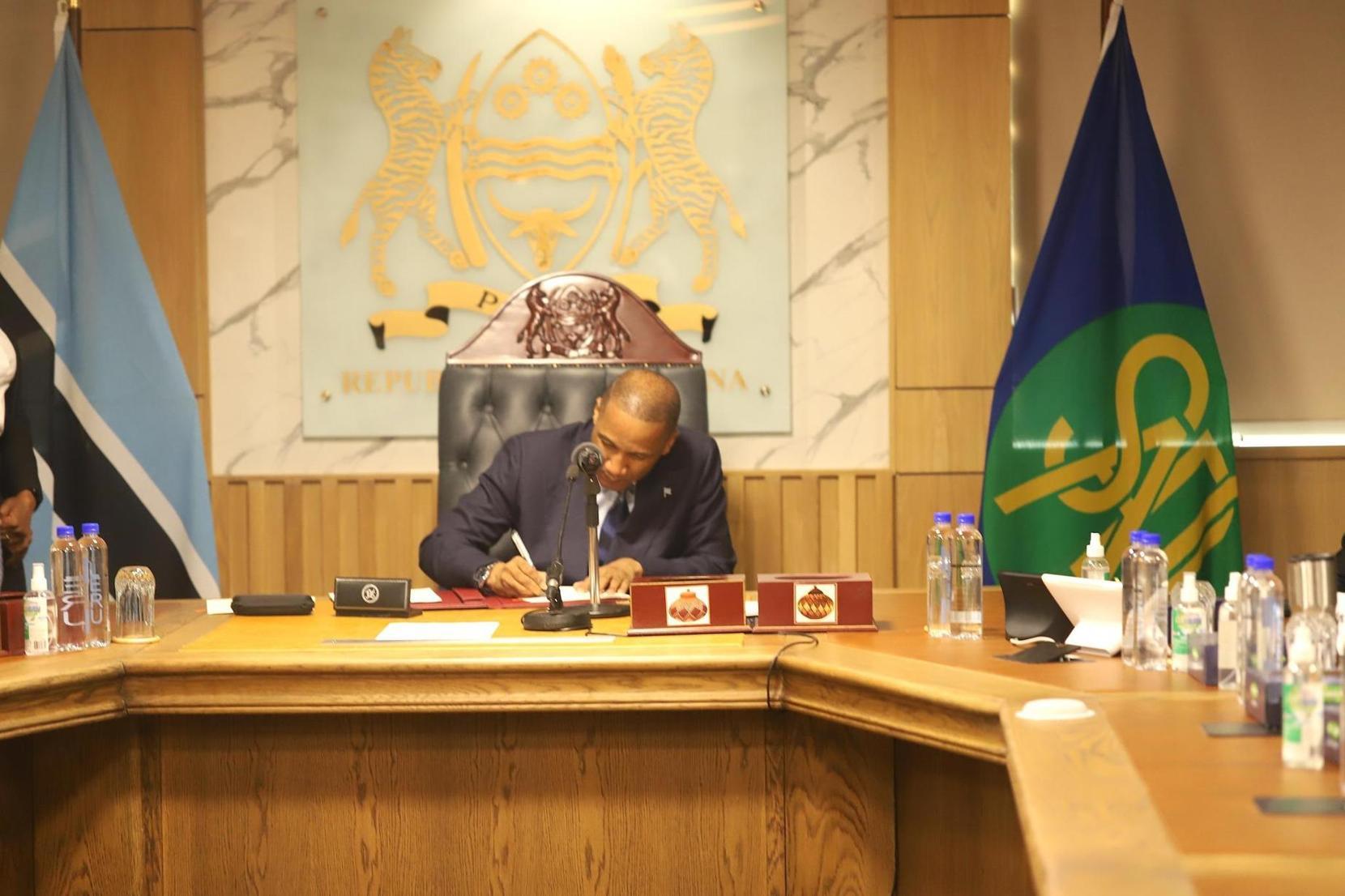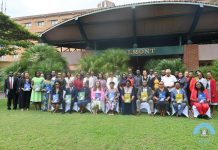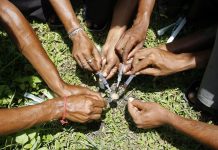Africa-Press – Botswana. African leaders have pledged to prioritise children’s welfare during the World Regional Children’s Day commemoration held Saturday in Gaborone.
Amid rising poverty, conflict, climate change, limited access to clean water and sanitation, substance abuse, and child exploitation, challenges increasingly affecting children across the continent, leaders from Botswana, Namibia, Zambia, Zimbabwe, South Africa, Malawi, and Mozambique reiterated their commitment to urgent action.
Their remarks were delivered in response to child representatives who symbolically took over Parliament, advocating for policy action on behalf of children from their respective countries.
Addressing the children delegates and other attendees, Vice President of Namibia, Ms Lucia Witbooi, highlighted progress her government had made in integrating disability inclusion into the national development agenda over the past four years.
She said that Namibia would collaborate with UNICEF and the Ministry of Education, Innovation, Youth, Sports, Arts and Culture, to roll out targeted campaigns, including the Boy Back to School initiative aimed at addressing the increasing disengagement of boys from formal education. The initiative, to be led by the President of Namibia, is expected to be launched in the first quarter of 2026.
Ms Witbooi added that government was committed to combating teenage pregnancy, a leading cause of school dropouts among girls and a driver of vulnerability to Gender-Based Violence, exploitation and early marriage.
In response, Namibia, in partnership with various stakeholders, has implemented an education sector policy for the prevention and management of learner pregnancy, coupled with community engagement campaigns.
For her part, Minister of Community Development and Social Services of Zambia, Ms Doreen Mwamba, reaffirmed her government’s continued commitment to protecting and promoting children’s rights through sustained ratification and implementation of international treaties, including the United Nations Convention on the Rights of the Child and the African Charter on the Rights and Welfare of the Child.
She noted that over two million Zambian children had returned to school after previously dropping out due to financial challenges, a milestone attributed to government policies grounded in the belief that education was the greatest equaliser.
Additionally, she stated that over 1.4 million desks had been distributed to government schools nationwide, to provide learners with a conducive learning environment.
This intervention complements other efforts, including the establishment of victim support and child protection units under the Zambia Police Service, along with reinforcement of the education and health sectors through increased recruitment of teachers and health workers.
UNICEF, Eastern and Southern Africa, deputy regional director, Ms Alison Parker, commended the Government of Botswana and SADC for hosting the commemoration.
She reiterated UNICEF’s commitment to strengthening social policy, enhancing budget efficiency, and ensuring targeted investments yield maximum impact within a competitive development framework.
For More News And Analysis About Botswana Follow Africa-Press






